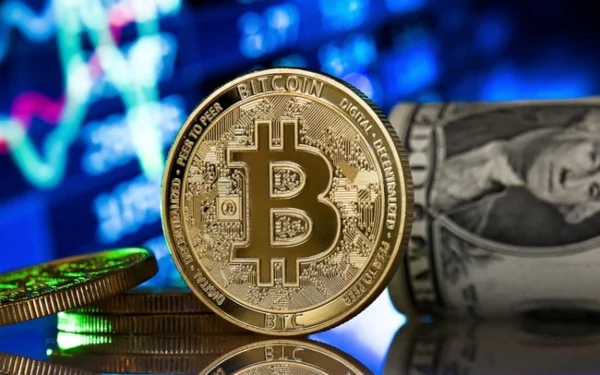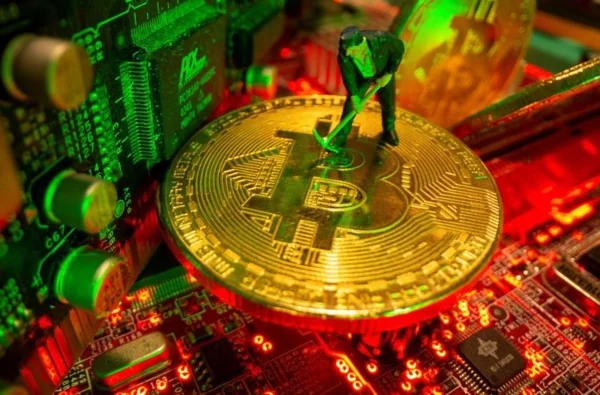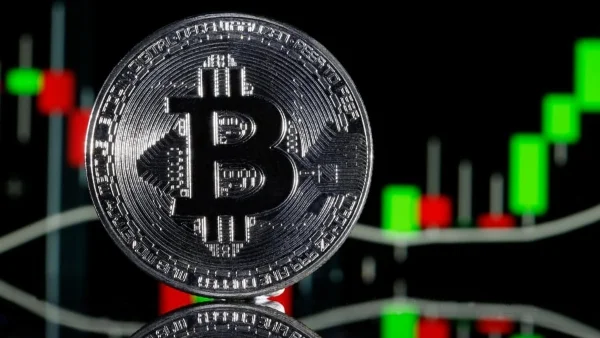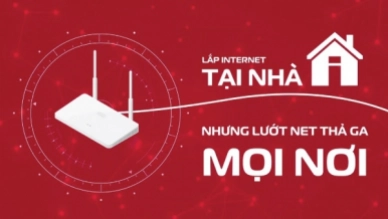I. Learn about Bitcoin
1. What is Bitcoin?
Bitcoin (symbol BTC, XBT, ₿) is a type of digital or cryptocurrency that is decentralized.
From a user’s perspective, Bitcoin is quite similar to money used in electronic wallets like Momo, Zalo Pay, etc., that many people are accustomed to using. The key difference between Bitcoin and these types of money is Bitcoin's decentralized nature.

Bitcoin was created by an individual (or organization) who chose to remain anonymous under the name Satoshi Nakamoto.
Unlike other coins in the market, the amount of Bitcoin that can be mined is limited. Specifically, there is a maximum of 21 million Bitcoins, and it is estimated that by 2040, miners will have mined all of them.
2. How is Bitcoin different from traditional money?
The similarity is that both are used for transactions such as payments and transfers between buyers and sellers.
The first difference is that traditional money is strictly controlled by banks and governments, while Bitcoin operates on a decentralized network of peers and cannot be controlled by anyone.
The second difference lies in anonymity. For traditional money transactions, all customer information is held by banks. However, Bitcoin wallets are not linked with personal information, ensuring high anonymity. This anonymity has been exploited for money laundering and illegal activities.
The third difference is that Bitcoin doesn’t exist physically, meaning it doesn’t come in coins or paper like traditional money.
3. How does Bitcoin operate?
Bitcoin is built on blockchain technology, a revolutionary system in IT.
Blockchain technology is a chain-block technology that allows secure data transmission based on highly complex encryption systems, similar to a company's ledger, where money is closely monitored and all transactions on the peer-to-peer network are recorded.

When you conduct a transaction, it is verified by miners (computers). If there is no error or fraud, the computer receives Bitcoin as a reward, and your transaction is added to the ledger, indicating a successful completion.
II. Characteristics of Bitcoin
1. Decentralized
Transactions with Bitcoin do not involve any intermediaries and are directly peer-to-peer.
2. Anonymity
Bitcoin wallets are not linked to personal information, making it difficult to track the owner's identity.
3. Transparency
While it’s impossible to identify the owner of a wallet, it is possible to know how much Bitcoin is stored in it. Thus, all transactions are transparent; we can know how much Bitcoin a wallet has sent or received.
4. High Speed
The Bitcoin network processes many simultaneous payments very quickly, in just a few minutes, unlike traditional money transfers that go through intermediaries and can take days.
5. Irreversible
Once Bitcoin is sent, there is no way to retract it unless the recipient agrees to return it. This can act as proof of payment, meaning that anyone you are dealing with cannot deceive you by saying they haven't received the money.

III. Why does Bitcoin have value?
1. Bitcoin cannot be counterfeited
Bitcoin doesn’t exist physically, in coin or paper form, so it cannot be counterfeited.
2. High security and relatively safe
All Bitcoin transactions are public on the Internet, but the identities of the traders are kept confidential.
3. Low transaction costs
Bitcoin transactions do not involve any intermediaries, so the cost is almost zero.
4. Great potential for eCommerce
Today, many eCommerce websites, stores, and companies around the world allow Bitcoin as a form of payment.
All Bitcoin transactions, once made, cannot be altered, preventing fraud.
Many businesses have accepted Bitcoin as payment, which has added to its value.
IV. What still prevents Bitcoin from becoming more popular
1. Number of users is still low
Most people lack knowledge and do not know what Bitcoin is, thinking it is unreliable digital money, therefore, they do not use it.
Bitcoin is currently only used in a few developed countries like the US, China ..., and in most other countries, people are still accustomed to coins and paper money.
2. Difficult to use
For those not skilled in technology and unfamiliar with Bitcoin, it is very difficult to use.
3. Value often fluctuates greatly
Like gold or the stock market, Bitcoin fluctuates in real-time. Sometimes it surges, sometimes it drops significantly; almost all global fluctuations can affect the cryptocurrency’s value.
4. Uncontrollable therefore prone to illegal activities
Since Bitcoin transactions cannot be controlled, criminals may use this type of transaction for money laundering.
Submit feedback
Your email address will not be made public. Fields marked are required *
Search
Trend
-
The most commonly used HTML tags
02-01-2020 . 11k view
-
Websites for earning money at home by typing documents
05-17-2023 . 9k view
-
Earn money by answering surveys with Toluna
01-12-2020 . 7k view
-
Guide to creating a database in phpMyAdmin XAMPP
04-25-2020 . 4k view












0 feedback